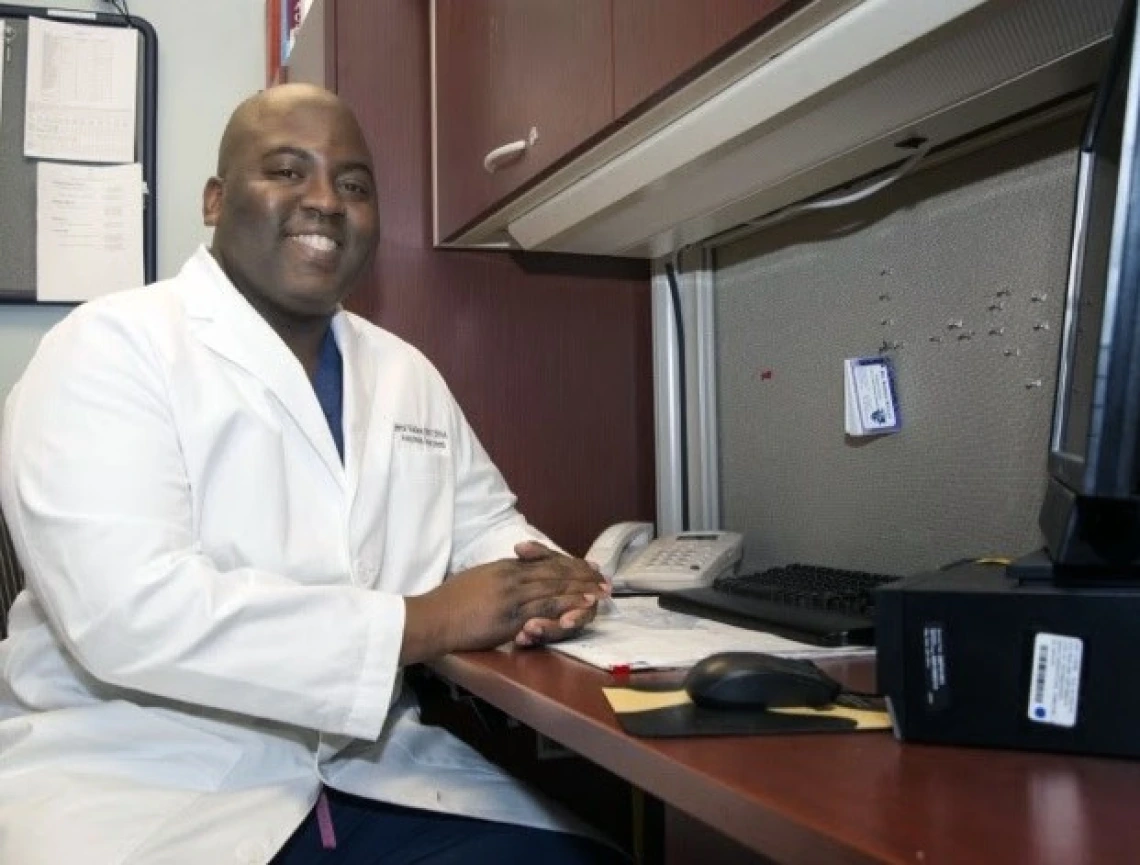Wildcat Nurse Spotlight: Jerrol Wallace, Third-Year PhD Candidate

Meet Jerrol Wallace, DNP. CRNA, FAANA, third-year University of Arizona College of Nursing Doctor of Philosophy in Nursing (PhD) candidate. Originally from the Queens Borough of New York City, Dr. Wallace is a proud first generation American born to Jamaican parents. A 27-year active-duty member of the United States Navy, Dr. Wallace is also the first Black program director for the military's nurse anesthesia program. His research focuses on chronic pain, specifically fibromyalgia and the role stigma plays in the patient-provider interaction.
Can you tell us a bit about your background?
Once I graduated high school, I was a full-time student and an Emergency Medical Technician to help pay for school. After two years of college and having no direction, I joined the Navy to get some structure and discipline. Twenty-nine years later, I am still active duty and will be promoted to Captain. I started out as an enlisted Sailor as an E2 and now will be an O6.
“It has been a great experience and I felt I learned a lot. I was in a program previously, that I felt did not have the rigor required of a PhD program and definitely found that University of Arizona had it, which was very important to me," ~ Jerrol Wallace, DNP. CRNA, FAANA
Why did you choose to pursue a career in nursing?
When my first daughter was born, she needed surgery and a female came up to me and introduced herself as a Certified Registered Nurse Anesthetist and took great care of my daughter. It was at that moment I told myself that I was going to become a CRNA. I went to nursing school, then became a critical care nurse, and then went to anesthesia school. I have been practicing now for over 15 years as a CRNA. I also help multiple positions at the national and state level to include the president of the Virginia association of nurse anesthetists. I recently started a new job as the director of the simulation center at Naval Medical Readiness and Training Center in Portsmouth Virginia, the Navy's largest medical center.
What drew you to apply to UArizona’s PhD program?
I searched long and hard for a program with a great reputation in online academia and was recognized within the colleges of nursing. It was important to me that there was a CRNA program there and had a robust program of study. It was also a plus that there was a DNP to PhD bridge program. What sold me was that I had a two-hour conversation with the program director that made me feel very comfortable and showed me that I would be supported.
How would you describe your experience over the course of the program?
It has been a great experience and I felt I learned a lot. I was in a program previously, that I felt did not have the rigor required of a PhD program and definitely found that University of Arizona had it, which was very important to me. I will admit that UArizona is not perfect, but it was the perfect program for me!
Has your experience as a CRNA educator and practitioner influenced your approach to your studies?
It has. As an academician I see it from both sides, meaning that when I get frustrated, I take off my student hat and see it from the perspective of the professor, which reduces some of the frustration. I do believe that transparency is essential and that professors should be ok sharing with the students, which will decrease frustration and make for a better relationship with the student-professor dyad.
What has been the most meaningful part of your studies?
I recently developed my own theory and a theoretical framework that I believe can be used in any interaction that may be affected by stigma.
What has been your greatest takeaway from the program?
My biggest takeaway was that you have to truly be committed to the process. Even if someone decides to go part-time, your body of research is a full-time entity and you have to be "all in" in order to create your body of research.
Tell us about your post-graduation plans.
The next three years I will finish up my career in the Navy and then transfer back to the University setting in the hopes of obtaining a position as a Program Director or as a Dean within a college of nursing.

